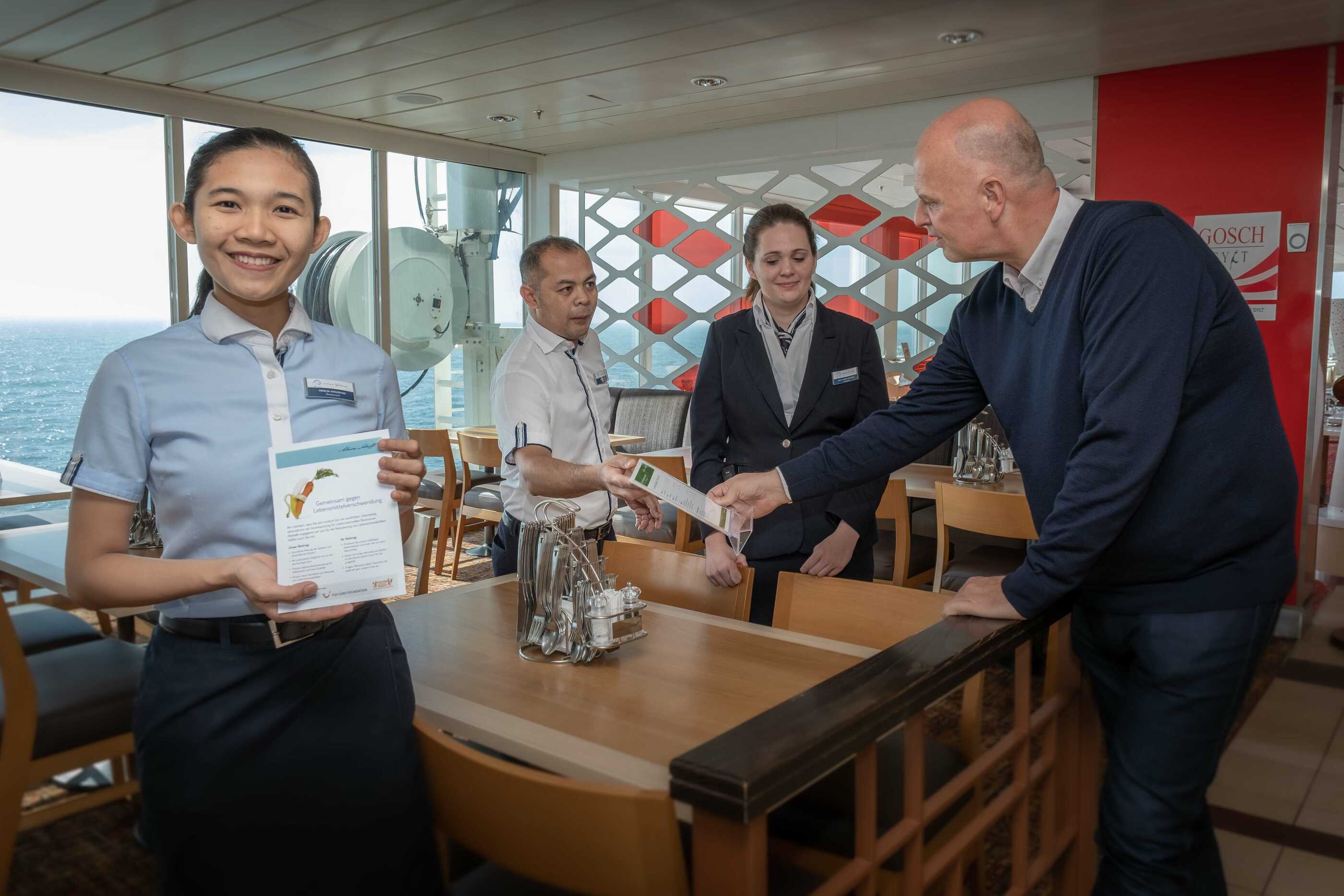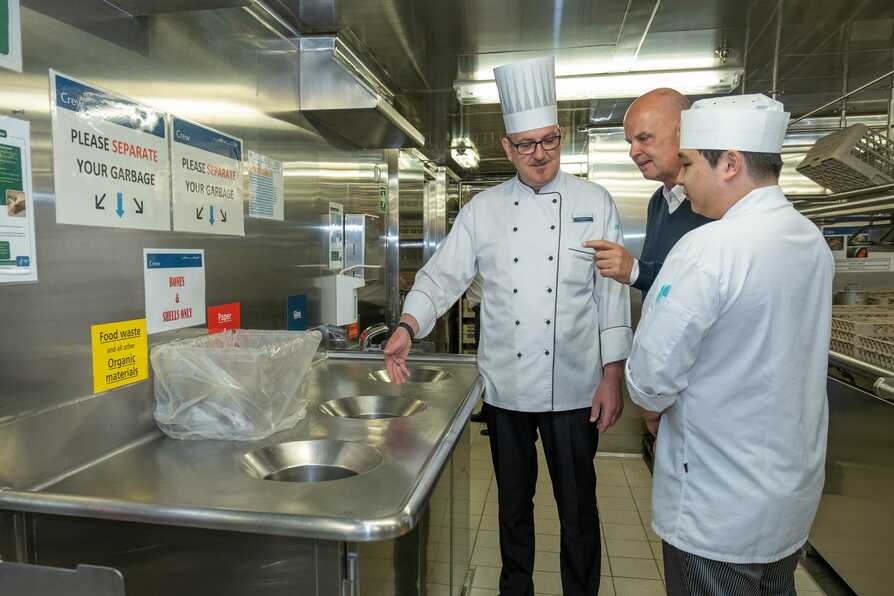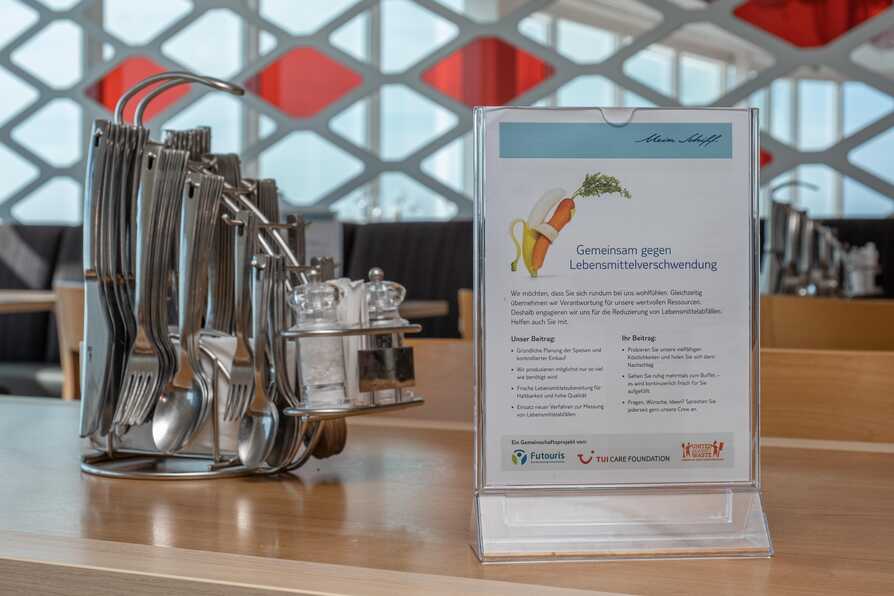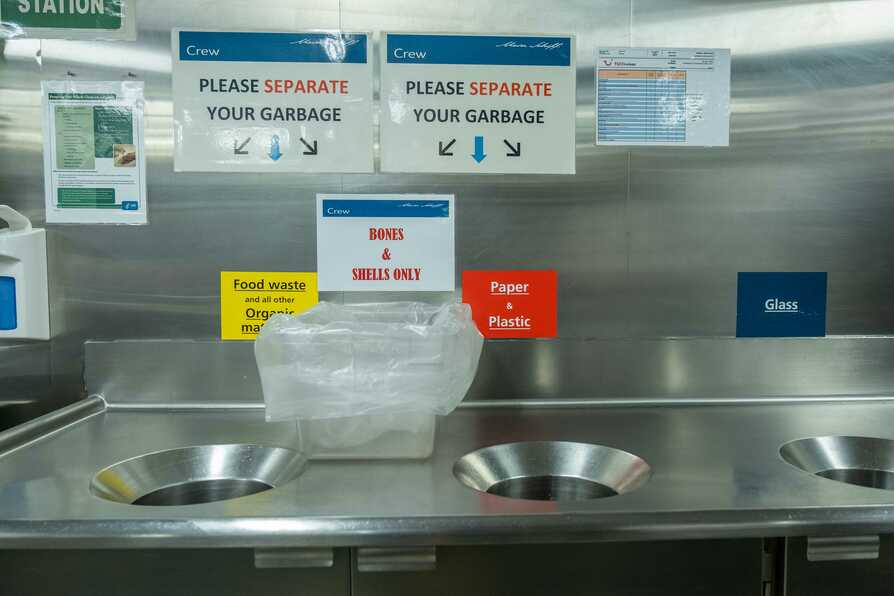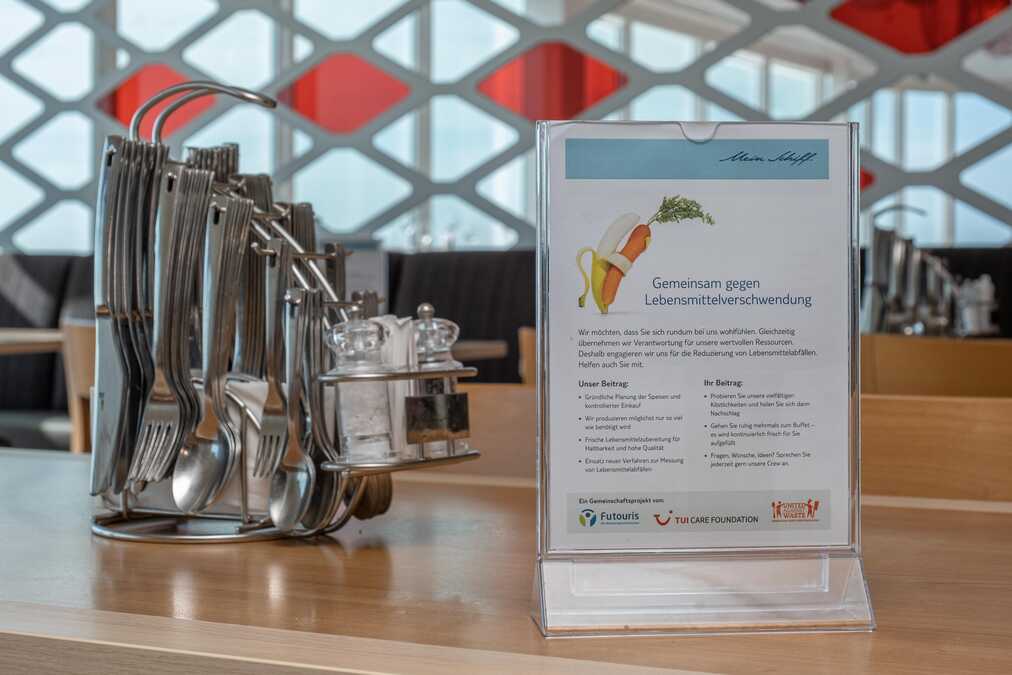
After three years of practical case study research and testing, a project on food waste reduction supported by the TUI Care Foundation has now developed concrete guidelines which could help reduce food waste on-board by up to 17% each year.
The project is part of a broad cooperation between the TUI Care Foundation and other tourism organizations, including Futouris and TUI Cruises. The main findings of the case study are now being made available to the broader cruise industry through the publication of a final report: Reduction of Food Waste on Cruise Ships.
In 2016 a pilot project was launched aboard the German based ‘Mein Schiff’ fleet of TUI Cruises. The outcome is impressive: 17% less food waste is produced every year on board.
Working closely with the kitchen teams, a group of experts documented food waste levels in food stores, food processing phases, buffets and, of course, plate leftovers. Using a waste analysis tool developed by United Against Waste e.V., those measurements were then carefully evaluated to identify potential areas to prevent food waste. It quickly became clear that an average of 50% of TUI Cruise’s food waste is generated in overproduction. This area offers the highest potential for savings, followed by the plate leftovers category which represents 18% of food waste in the fleet.
The report highlights that “reducing food waste saves money (due to less purchasing and less disposal) and enables an increase in food quality (in terms of the food quality itself and the option of sustainable, biological, regional or certified food products). This win-win situation saves financial and ecological resources.” While there are different stages in which to focus food waste reduction strategies, prevention is where there are the greatest savings. But the first step is to identify when, where and how is food waste taking place.
The report proposes three key and concrete monitoring steps to measure food waste in cruise ships, which can be applied by any stakeholder in the industry – the data can then be used to identify practical actions that will lead to waste food reduction and cost savings.
Actions like providing bread on demand and setting up the table when guests arrive, or using smaller bowls, buffet inserts and food containers on the buffet, have been proven to have a significant impact on food waste reduction without harming good service and quality of products.

